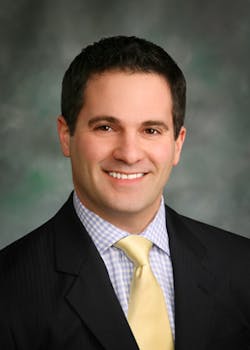Elections 2016: No Party for Maintenance Industry
As the American people sort out the results of this year’s presidential primaries, many voters are dissatisfied with their choices to lead the country. For the global aviation maintenance and manufacturing industry, both party’s candidates have disconcerting tendencies toward growth-hindering policies for repair stations. Regardless of political leanings, maintenance providers around the world should be very worried about this year’s pivotal elections.
For U.S.-based repair stations, competing internationally depends on access to foreign markets and free exchange in services and parts. Traditionally, presidential candidates have tended to fall along fairly clear party lines regarding trade and international economic issues: Democrats tended to be anti-free trade (interestingly, except Bill Clinton), while Republicans have touted globalization and open markets. Not in 2016. Both Republican Donald Trump and Democrat Hillary Clinton have intensified up the rhetoric about ending free trade agreements under the pretense that these accords make it easier for U.S. companies to ship jobs to other countries.
As of yet, the presidential candidates haven’t focused specifically on aviation policy issues (aside from a mention by the Clinton campaign that she’s against Norwegian Air operating in the United States). However, the same false arguments utilized by contract maintenance’s opponents on Capitol Hill (American jobs lost overseas) are repeated by the campaigns while attacking free trade. It could mean trouble for the aviation industry as a President Trump or President Clinton imposes protectionist policies on U.S. sectors that thrive both domestically and internationally (such as aviation maintenance and manufacturing).
We know false economic arguments about contract maintenance can be rebutted by facts. ARSA’s most-recent research determined global air transport MRO (for jets and turboprops) is expected to be $67.7 billion in 2016. Considering expected expansion in both passenger traffic and the size of international fleets as well as the emergence of new technology, the aviation maintenance industry is forecast to grow by 3.9 percent annually over the next decade. By 2026, the industry’s global economic impact will approach $100 billion. Here in the United States, more than 3,800 maintenance firms employing 136,000 men and women generate $43 billion in economic activity across all 50 states. Eighty-eight percent of these American businesses have fewer than 50 employees; that’s 3,400 small businesses working in our communities every day as a part of this larger industry. In all, the maintenance and production of aviation parts and equipment accounts for nearly 300,000 jobs across the country.
Nonetheless, history tells us that politics often trumps (no pun intended) good policy. Combine false safety arguments (the uninformed insistence by anti-contract maintenance interests that repair stations are inherently unsafe and lack oversight) with fabricated economic scare tactics and the next administration could set its sights on our industry. While we know Hillary Clinton has supported legislation to impose cumbersome and unnecessary mandates on repair stations, Donald Trump’s views on global maintenance issues are unknown.
The 2016 election will be among the most interesting in history. As campaign season ramps up, remember to demand answers from the candidates on where they stand on aviation issues and base your support on those views. In the turbulent months ahead, figure out which ticket is willing to include your business in its party.
Daniel B. Fisher is senior legislative associate of Obadal, Filler, MacLeod & Klein, P.L.C. providing client advocacy services, public policy counsel, and strategic advice on legislative and regulatory matters. As a registered federal lobbyist, he advocates for the Aeronautical Repair Station Association, Associated Equipment Distributors, and the American Concrete Pressure Pipe Association.



